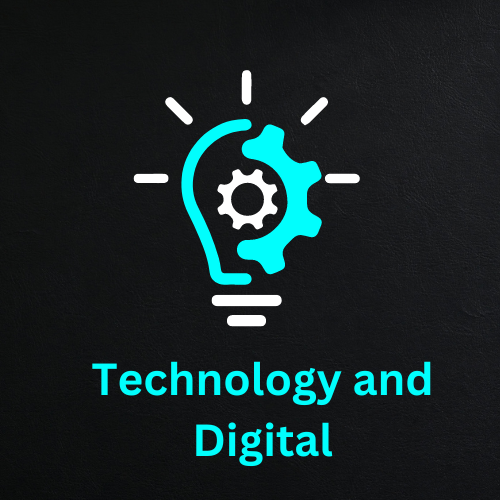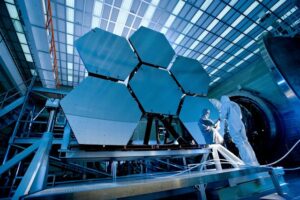
Greening the Future: Biotechnology’s Contribution to Sustainable Solutions
Sustainability isn’t just a buzzword; it’s a crucial goal for ensuring the long-term health of our planet. As we grapple with environmental challenges, biotechnology has emerged as a powerful ally in our quest for sustainable solutions. Let’s dive into how biotechnology is transforming various sectors to help us create a greener, more sustainable future.
Understanding Sustainability
Definition and Key Principles
Sustainability is all about meeting our present needs without compromising the ability of future generations to meet theirs. It revolves around three main pillars: economic viability, environmental protection, and social equity. Balancing these aspects ensures that development is both inclusive and long-lasting.
Importance of Sustainability for the Future
Adopting sustainable practices is essential to mitigate climate change, preserve natural resources, and maintain the health of ecosystems. It’s not just about environmental conservation; it’s about creating a resilient and equitable world for everyone.
Biotechnology: An Overview
Definition and Evolution
Biotechnology involves the use of living organisms or their components to develop products and technologies that improve our lives. From ancient practices like fermentation to modern genetic engineering, biotechnology has continuously evolved, offering innovative solutions to complex problems.
Branches of Biotechnology
Biotechnology is a diverse field encompassing various branches, including medical (red), agricultural (green), industrial (white), and environmental (blue) biotechnology. Each branch contributes uniquely to sustainability efforts.
Biotechnology in Agriculture
Genetically Modified Crops
Genetically modified (GM) crops are engineered for traits like pest resistance, drought tolerance, and improved nutritional content. These crops can significantly reduce the need for chemical pesticides and fertilizers, promoting more sustainable farming practices.
Biopesticides and Biofertilizers
Biopesticides are derived from natural materials such as animals, plants, bacteria, and certain minerals. They pose fewer risks than conventional pesticides. Biofertilizers, which consist of living microorganisms, enhance soil fertility and promote plant growth, reducing the dependency on chemical fertilizers.
Sustainable Farming Practices
Biotechnology also promotes sustainable farming practices such as precision agriculture, which uses data and technology to optimize field-level management regarding crop farming. This reduces waste, conserves resources, and improves productivity.
Biotechnology in Environmental Conservation
Bioremediation
Bioremediation uses microorganisms to degrade environmental contaminants into less harmful forms. It’s an effective way to clean up oil spills, heavy metals, and other pollutants, restoring the natural state of ecosystems.
Waste Management
Biotechnology offers solutions for waste management through the development of microbes that can break down various types of waste, including plastics. This reduces the environmental impact of waste and promotes recycling and resource recovery.
Restoration of Ecosystems
Biotechnology helps restore degraded ecosystems by using plants and microorganisms to re-establish natural processes. For example, phytoremediation uses plants to absorb contaminants from the soil, revitalizing polluted areas.
Biotechnology in Energy
Biofuels
Biofuels, derived from organic matter, are a renewable energy source that can reduce our reliance on fossil fuels. They produce fewer greenhouse gases and can be produced from a variety of feedstocks, including agricultural waste and algae.
Algal Bioenergy
Algae are a promising source of bioenergy due to their rapid growth and high oil content. They can be cultivated in environments unsuitable for conventional crops, making them a sustainable option for biofuel production.
Biomass Conversion
Biomass conversion technologies convert organic materials into energy, chemicals, and materials. This includes processes like anaerobic digestion, which produces biogas, and pyrolysis, which generates bio-oil and biochar.
Biotechnology in Industry
Green Manufacturing Processes
Biotechnology enables green manufacturing processes that use enzymes and microorganisms to produce chemicals, materials, and energy with reduced environmental impact. This includes the production of bio-based chemicals and materials that replace petroleum-based products.
Bioplastics and Biodegradable Materials
Bioplastics, made from renewable biological sources, offer a sustainable alternative to traditional plastics. They are biodegradable, reducing plastic pollution and conserving fossil resources.
Enzyme Applications
Enzymes are biological catalysts that can be used in various industrial processes to increase efficiency and reduce energy consumption. They are used in everything from food production to textile manufacturing, enhancing sustainability.
Case Studies of Biotechnology in Sustainability
Golden Rice Project
Golden Rice is genetically modified to produce beta-carotene, a precursor of vitamin A. This project aims to combat vitamin A deficiency in developing countries, showcasing how biotechnology can address nutritional challenges sustainably.
Plastic-Eating Bacteria
Researchers have discovered bacteria that can digest plastics, offering a potential solution to the global plastic pollution crisis. These microbes break down plastics into harmless byproducts, reducing environmental impact.
Microbial Fuel Cells
Microbial fuel cells use bacteria to convert organic waste into electricity. This innovative technology provides a sustainable way to generate power while treating wastewater, demonstrating the multifunctional potential of biotechnology.
Benefits of Biotechnology in Sustainable Solutions
Efficiency and Productivity
Biotechnology enhances efficiency and productivity in various sectors, from agriculture to industry, enabling more sustainable practices that conserve resources and reduce waste.
Environmental Impact Reduction
By reducing the need for chemical inputs, promoting renewable energy sources, and enabling waste recycling, biotechnology helps lower the environmental footprint of human activities.
Economic Viability
Biotechnological solutions can be cost-effective, offering economic benefits while achieving sustainability goals. This makes them attractive options for businesses and governments alike.
Challenges and Ethical Considerations
Ethical Dilemmas in Genetic Modification
Genetic modification raises ethical questions about the manipulation of living organisms. Concerns include potential long-term effects and the moral implications of altering natural life forms.
Ecological Risks
Introducing genetically modified organisms into the environment can have unpredictable effects on ecosystems. There is a need for thorough risk assessments to prevent unintended consequences.
Regulatory and Public Acceptance
Biotechnological innovations often face regulatory hurdles and public skepticism. Building trust through transparent communication and stringent safety standards is essential for widespread acceptance.
Future Prospects of Biotechnology in Sustainability
Emerging Technologies
New technologies, such as synthetic biology and gene editing, hold great promise for advancing sustainable solutions. These innovations could lead to even more efficient and targeted approaches to conservation and resource management.
Long-term Sustainability
Ensuring the long-term sustainability of biotechnological interventions requires ongoing research, adaptive management, and integration with traditional practices. A holistic approach will be key to achieving enduring benefits.
How Individuals Can Support Sustainable Biotechnology
Supporting Biotech Innovations
Investing in and advocating for biotechnological research can accelerate the development of sustainable solutions. Supporting initiatives that promote innovation can drive positive change.
Advocating for Sustainable Practices
Adopting and promoting sustainable practices in daily life can reduce the environmental impact and support broader sustainability goals. This includes reducing waste, conserving energy, and choosing sustainable products.
Raising Awareness
Educating others about the benefits and potential of biotechnology in sustainability can foster a collective effort to embrace and support these innovations. Awareness campaigns can inspire action and drive public support.
Conclusion
Biotechnology offers a wealth of opportunities to address some of the most pressing environmental challenges of our time. By leveraging the power of living organisms and their processes, we can develop sustainable solutions that promote a healthier planet. Embracing these innovations and addressing the associated challenges responsibly will be crucial for creating a sustainable future for all.
FAQs
What is sustainability and why is it important?
Sustainability is about meeting current needs without compromising the ability of future generations to meet theirs. It’s crucial for ensuring the long-term health of our planet and the well-being of all its inhabitants.
How does biotechnology contribute
4o
AIPRM – ChatGPT Prompts
Showing 1 to 12 of 4924 Prompts
Human Written |100% Unique |SEO Optimised Article
GPT-3.5 Turbo GPT-4 Turbo GPT-4o Human Written | Plagiarism Free | SEO Optimized Long-Form Article With Proper Outline [Upgraded Version]
Yoast SEO Optimized Content Writer
Write detail YoastSEO optimized article by just putting blog title. I need 5 more upvotes so that I can create more prompts. Hit upvote(Like) button.
Fully SEO Optimized Article including FAQ’s
GPT-3.5 Turbo GPT-4 Turbo GPT-4o Create a 100% Unique and SEO Optimized Article | Plagiarism Free Content with | Title | Meta Description | Headings with Proper H1-H6 Tags | up to 2500+ Words Article with FAQs, and Conclusion.
Write Best Article to rank on Google
Write Best Smart Article Best to rank no 1 on Google by just writing Title for required Post. If you like the results then please hit like button.
Midjourney Prompt Generator
Outputs four extremely detailed midjourney prompts for your keyword.
Human-like Rewriter – V1.6
Re-write your ai-generated article with this tool! You can get up-to 90-100% Human Generated score!
Write a Complete Book in One Click
Write a full book with different chapters
Get Monthly Content Calendar In 1 Click
Get a beautifully organized 4-week content calendar that targets your primary keyword using only transaction longtail keyword & clickbait style post titles. Try it out!
YouTube Script Creator
Create captivating script ideas for your YouTube videos. Enter a short description of your video. Generates: Title, Scene, and Entire Script.
Buyer Persona Legend
Generate detailed User Personas for your Business with data neatly organized into a table.
Outrank Article
GPT-3.5 Turbo GPT-4 Turbo GPT-4o Outrank the competition with an in-depth, SEO-optimized article based on [YOUR COMPETITOR URL]. Be like your competition, just a little better 😉
Keyword Strategy
GPT-3.5 Turbo Create a keyword strategy and SEO content plan from 1 [KEYWORD]
Showing 1 to 12 of 4924 Prompts




